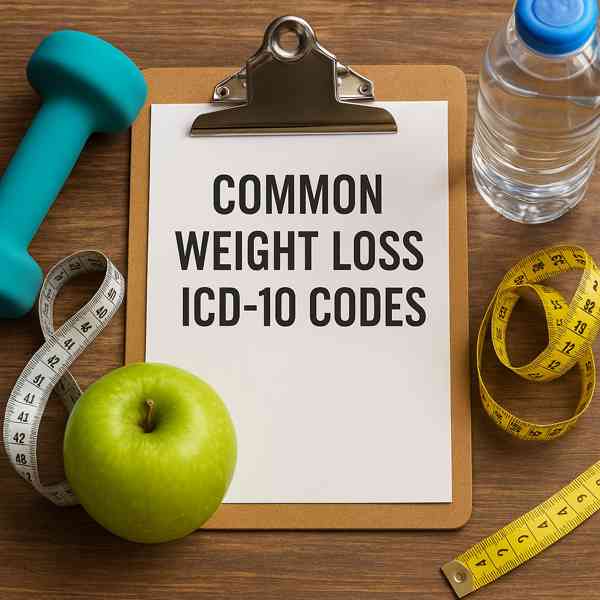
Whether you’re a medical professional, billing specialist, or patient navigating claims, understanding weight loss ICD-10 codes is key.
In this article, we’ll break down what ICD-10 codes are used for weight loss, how to apply them, and what you should know for accurate recordkeeping.
What Are ICD-10 Codes?
ICD-10 stands for the International Classification of Diseases, 10th Revision.
Each diagnosis is assigned a unique code, which is used for:
- Submitting claims to health providers
- Tracking public health trends
- Clinical documentation
Top Codes Used for Documenting Weight Loss
Choosing the correct code depends on the cause, severity, and context of the weight loss.
Key codes include:
- R63.4 – Abnormal Weight Loss
This code applies when a patient loses a significant amount of weight without trying, often due to illness.
- Used when weight loss is guided by professional support
Often applied in cases involving nutritional intervention or guidance.
- Indicates poor nutrition or unhealthy patterns impacting weight
- Used in contrast to weight loss when monitoring obesity treatment progress
- E43 – Unspecified Severe Protein-Calorie Malnutrition
When to Use R63.4 for Weight Loss
R63.4 is the most commonly used ICD-10 code for weight loss, but it must be applied correctly.
- There is no intentional diet or fitness program involved
- A known condition doesn’t fully explain the weight change
- Used as part of diagnostic workup
Important Notes for Coding Accuracy
To avoid claim denials or coding errors:
- This determines whether R63.4 is appropriate
- Document related symptoms or conditions
- Use supplemental Z-codes for counseling or screenings
- Be sure they make sense in context
ICD-10 for Weight Management Programs
If you’re coding for a structured weight loss program or health coaching, consider using these Z-codes:
- For nutrition-based support
- Z76.89 – Person Encountering Health Services for Other Reasons
- Z13.21 – Encounter for Nutritional Screening
These codes can support insurance claims for wellness, prevention, and obesity treatment plans.
Use ICD-10 Effectively in Clinical Settings
Whether you’re coding for unintentional weight loss or part of a managed care plan, accuracy matters.
To check here summarize:
- R63.4 = Unintentional weight loss
- Z-codes = Counseling, prevention, and health maintenance
- E-codes = Nutritional or medical malnutrition
When in doubt, document fully and consult with a certified coding professional.
Comments on “Weight Loss ICD-10 Codes”